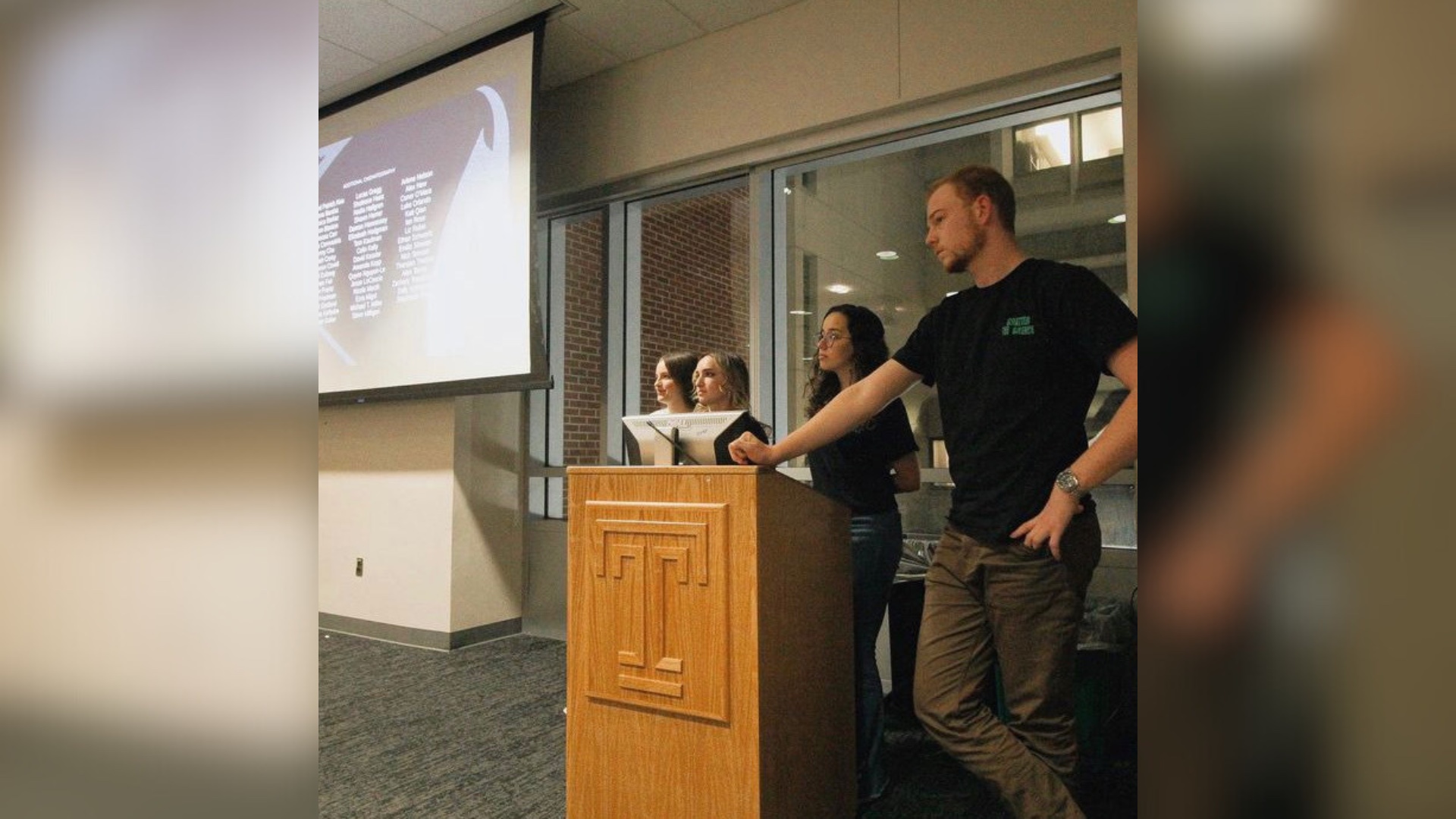As a warning, this story contains a discussion of some troubling content that may disturb some readers.
This April marks the 22nd anniversary of National Sexual Assault Awareness Month, but the sexual assault awareness movement dates back much further. Though it is an unfortunate truth that sexual violence is and always has been a part of college campus culture, many national sexual assault awareness organizations have college campus student organization affiliates.
Student Activists Against Sexual Assault (SAASA) is Temple University’s affiliate of Take Back The Night and an official chapter of It’s On Us. We talked to senior communication and social influence student Ben Wilcox about his experience as the communication chair for SAASA and what it was like to start the club back up at Temple after five years of inactivity.
How did you get involved with SAASA?
BW: I’ve known the president, Ray [Epstein], since high school. She came to me last summer and said, ‘I’m seriously considering founding this organization that’s been defunct for five years. Can you help me get it off the ground?’ So that’s what I did.
It was just me and Ray until the school year started. We were just planning the initial infrastructure and goals for the club. Once we got to campus, [Ray] tapped into everybody that she knew that she could talk to about this. We are lucky to have a really active and engaged E-board that really cares about everything that we do with the competencies to match. I’m really happy with our E-board and our general body is incredibly well-engaged, as well.
What is your role?
BW: Over the summer, before we were an official organization, we, Ray and I, were FaceTiming a lot to get this off the ground. The first thing was designing our logo, brainstorming some information materials that we could produce and just kind of setting the general framework for the club. I designed all of our information materials, which I’m very proud of.
The other thing that I do is write the monthly newsletter, and I also craft a lot of our social media messaging and our promotional flyers for events that we put on. I coordinate with [Bella Kwok], who runs our social media. I don’t have quite the time to do all that myself.
How does your coursework interact with your work for the club?
BW: The one that comes to mind most immediately is Public Speaking. I think since I started at SAASA, my public speaking skills have increased a dramatic amount. I’m a lot more comfortable talking in front of a crowd, and part of that is just being a leader in the club.
I don’t have enough great things to say about Jason Del Gandio’s Resistance, Protests, and Social Movements class. I love that class as well. It really gave me a good baseline for understanding how to talk about social movements.
What is the importance of having a club like this on campus?
BW: I think it’s absolutely crucial. One of the important services that SAASA provides is that under Title IX, we’re not mandatory reporters. If somebody confides in us that they’ve been a victim, we’re under no obligation to tell anybody, unlike other services on campus.
Anybody should agree with this: there’s a massive issue with sexual assault on college campuses. One in four college-aged women will go through sexual assault in their time at college. 88% of victims do not report their crime to the police. So, I think it’s really important to have these conversations because it’s something that people tend to shy away from. I’m really grateful that we have an engaged and very open general body and E-board because we can talk about these things candidly, and if people are so inclined, they can share their own experiences. There’s a lack of leadership on college campuses. I’m very wary of, you know, parties at college. That’s where a lot of sexual assaults occur and there’s not much of an infrastructure for handling that. So, SAASA, you know, while limited in our kind of scope that we can’t just change everything about how sexual assault is talked about on campus, I think we do a great job of incorporating voices. They need to be heard.
We also host a ton of events. We had a few recently. We helped run the Clothesline Project with the Wellness Resource Center. We have a formal for social causes coming up on the 29th. And then a tournament fundraiser with fraternity and sorority life.
Is there anything else you would like to add?
BW: One thing that I would like to add is that SAASA has incredibly high male engagement and that we work very closely with fraternity and sorority leadership to get our message across. The event that I think Ray and I are both proudest of is when we showed The Hunting Ground documentary to the Temple Interfraternity Council. It was a required event for all incoming pledges to attend.
Since we are a direct affiliate of It’s On Us, we had their assistant director of trainings come out to campus and give two training sessions on bystander intervention and survivor support, which was a great event. At the end of the day, nobody on our E-board are professionals. We’re not licensed in anything. We’re just trying to do what we can to do the right thing.
If you or someone you know has been assaulted, you can consult SAASA's Resource Center for Temple University and Philadelphia resources. In an emergency, contact 911 or Temple University Police at 215-204-1234.
Responses were edited for length and clarity.

